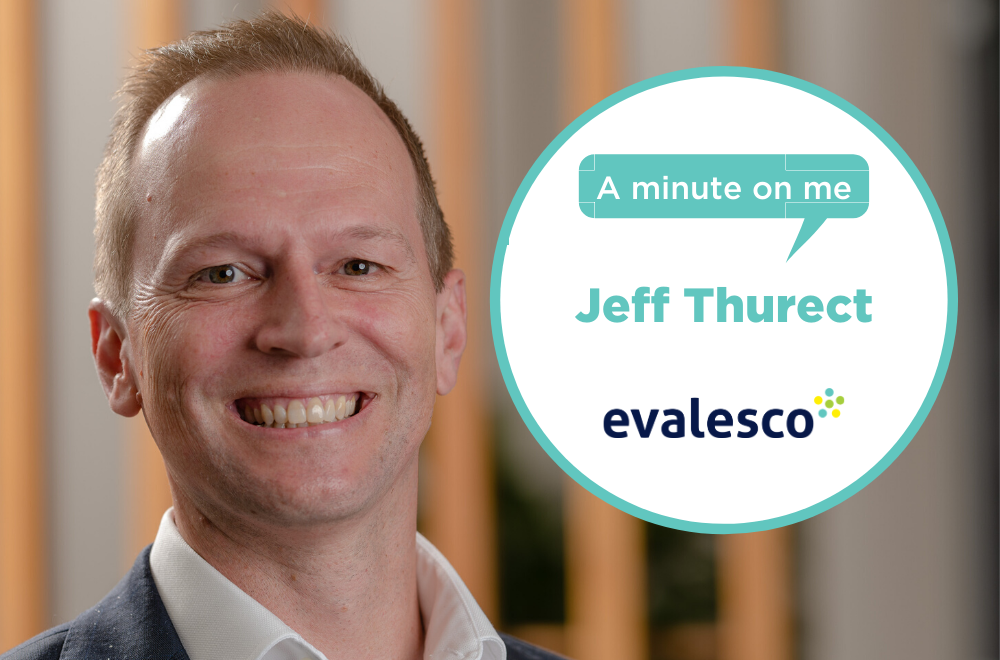The impact of COVID-19 is just beginning to be felt as we adjust to a new way of working and connecting with each other. While this is a unique event, there are still some learnings that can be taken from previous downturns.
Jeff Thurecht from Evalesco Financial Services shares his insights into how he and his team are finding their ‘new normal’ and how he is applying some of his learnings from the GFC to ensure his clients stay connected and informed.
Tell us a little bit about your business and the type of work that you do? How have you set up your team to continue working?
Our business has 18 team members including seven advisers, providing holistic financial advice, primarily to those focused on wealth accumulation, with a growing segment in the pre-retiree and retiree space.
Our office is based in the Sydney CBD. However, with the outbreak of the pandemic, we moved to a remote working environment, so we are scattered all over Sydney. It took a couple of days but it’s all working well now.
We usually jump on a ‘zoom’ call each morning for a check in and to keep in touch. We talk through our priorities for the day and share any key messages that need to be communicated to clients. We then update on anything that might have changed with client portfolios, any roadblocks we are encountering and any improvements we are working on to help streamline processes and support the team.
I also do a call with about half of the team (my business manager calls the other half) to see how everyone is going. And then at the end of the week we have a Friday wrap to share highlights, which we are now doing via zoom with a BYO beverage.
Have you seen a marked increase in inquiries from clients? How are you managing the increase?
There has definitely been an increase in client conversations but not more than what we expected. The change has been how we communicate to each other as a team. We are talking more regularly to ensure that we have a consistent message to share with clients.
As there are a few of us that had experienced the GFC, we’ve been able to share some of our learning from that with those in the team that are newer.
We are making sure we are sending out more regular updates and communications to our clients and being more proactive about what we’re putting out to clients, both as newsletter content as well as the more personalised and tailored content through email, phone and text. A big part for our clients is knowing that we are still there for them and while not in a physical office, we are continuing to be there and look after their portfolios.
There have been some enquiries about what to do with the market, etc., but even before this event, we’d put a lot of time into educating our clients and ensuring that they were set up. Really, the majority of the enquiries have been more of a check-in.
Enquiries are stepping up about the government stimulus and how they can take advantage of what’s included in there. And as that’s changing so frequently, we’re trying to put as much information as we can out there. Now that there’s a bit more certainty, we’re looking at what we can do to help our clients in that respect.
How else are you communicating with your clients?
About 90% of our calls are via zoom and about 10% are over the phone. There wasn’t a massive learning curve for our team as we all had experience with the technology. Interestingly, we are starting to get fewer calls with clients emailing us first to ask when it’s a good time to chat rather than ringing the office line.
We used to do a monthly newsletter but now we are sending out a newsletter every week. We are also doing more targeted updates to clients on things that are relevant to them right now. We hosted our first webinar last week, with 100 attendees.
What were some of the learnings from the GFC that you’ve been able to use in this environment?
What we learnt during the GFC is that clients don’t expect you to have all the answers in the short term. What they are looking to you for is to be available to them and show that you are doing your best to manage their portfolio and provide them a quality service. The key is, don’t wait until you have all the information, just take the call and have a chat and let them know you are there to support them.
And what are some of the differences?
It’s very clear what the problem is in the current situation – it’s how the pandemic is impacting the market and the economy so it’s relatively easy to explain. In the GFC, it was a lot more complicated to explain the financial system and what the problems where.
In this situation, everyone is really mindful of their portfolios, but it’s not necessarily their number one priority – health is the number one priority for them and it’s for us to give them confidence that we are doing our best to look after their finances so they don’t need to worry about that.
What, according to you, is the worst thing that clients can possibly do during the increased market volatility?
The worst thing anyone can do at the moment is overreact and do things without taking the time to think them through. It’s about reviewing your situation and assessing whether anything has changed in your plans, goals or personal situation. If it hasn’t, keep to the course, and if it has, speak to a professional about the best option to take, reviewing and refreshing your plan so it’s aligned to what you’re trying to achieve. You should also be working through your backup plans and can put those into action if required.
What's your one piece of advice for fellow advisers?
Put your own oxygen mask on first. You can’t be a support and a great value to your clients, your team and your family if you don’t look after yourself first and make sure you’re ok.
That’s the key thing. The other part is that if there’s ever a time when people will be understanding of you taking more time, or asking for patience, now is the time. It’s great to see how people are going out of their way to be kind and understanding. Don’t overburden yourself, take your time and look after yourself. That way we can help your teams and our families.
How are you managing your wellbeing during this time?
Making sure I’ve got a routine and staying healthy has been important. Where possible, I’m blocking out time to exercise – heading out for a run, etc.
The ethos in our team is empowering our community to be healthy, wealthy and happy so it’s a priority for us. We are sharing exercise routines, sharing photos and videos of our activities and staying connected. It’s really important to share the good feedback we are getting from clients and focus on the positives.


.png)

.jpg)